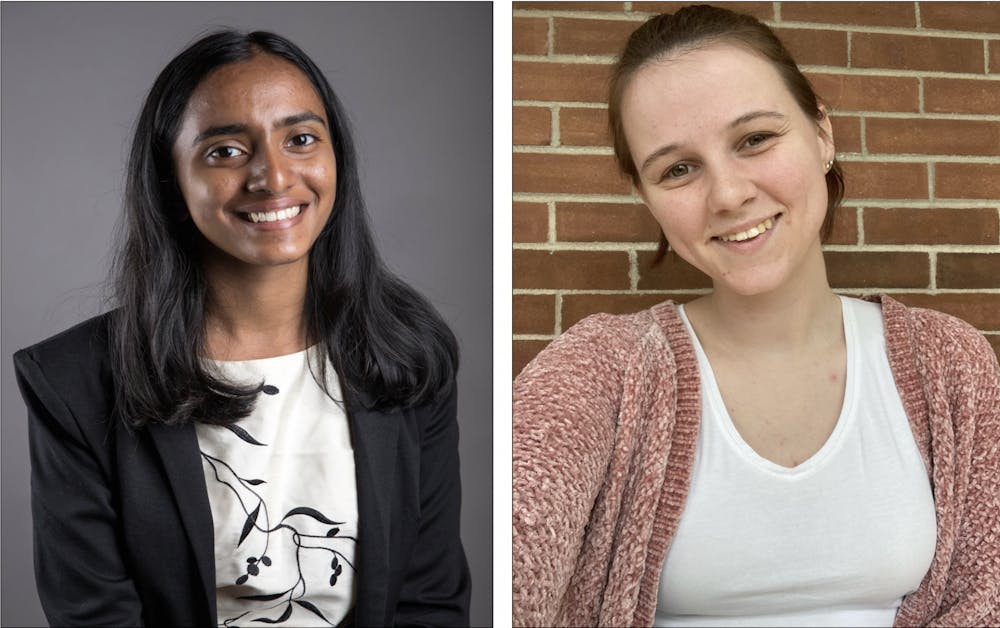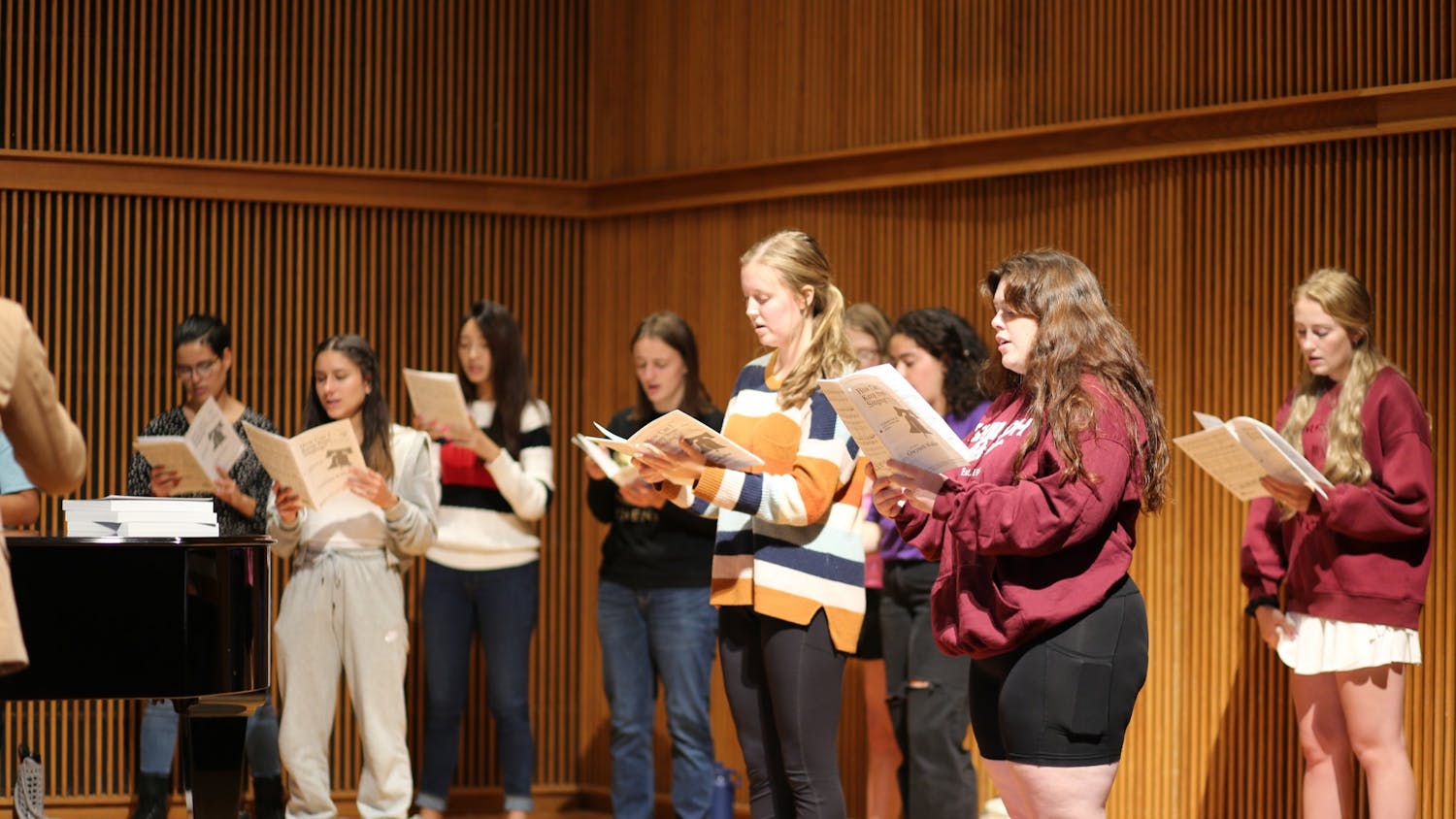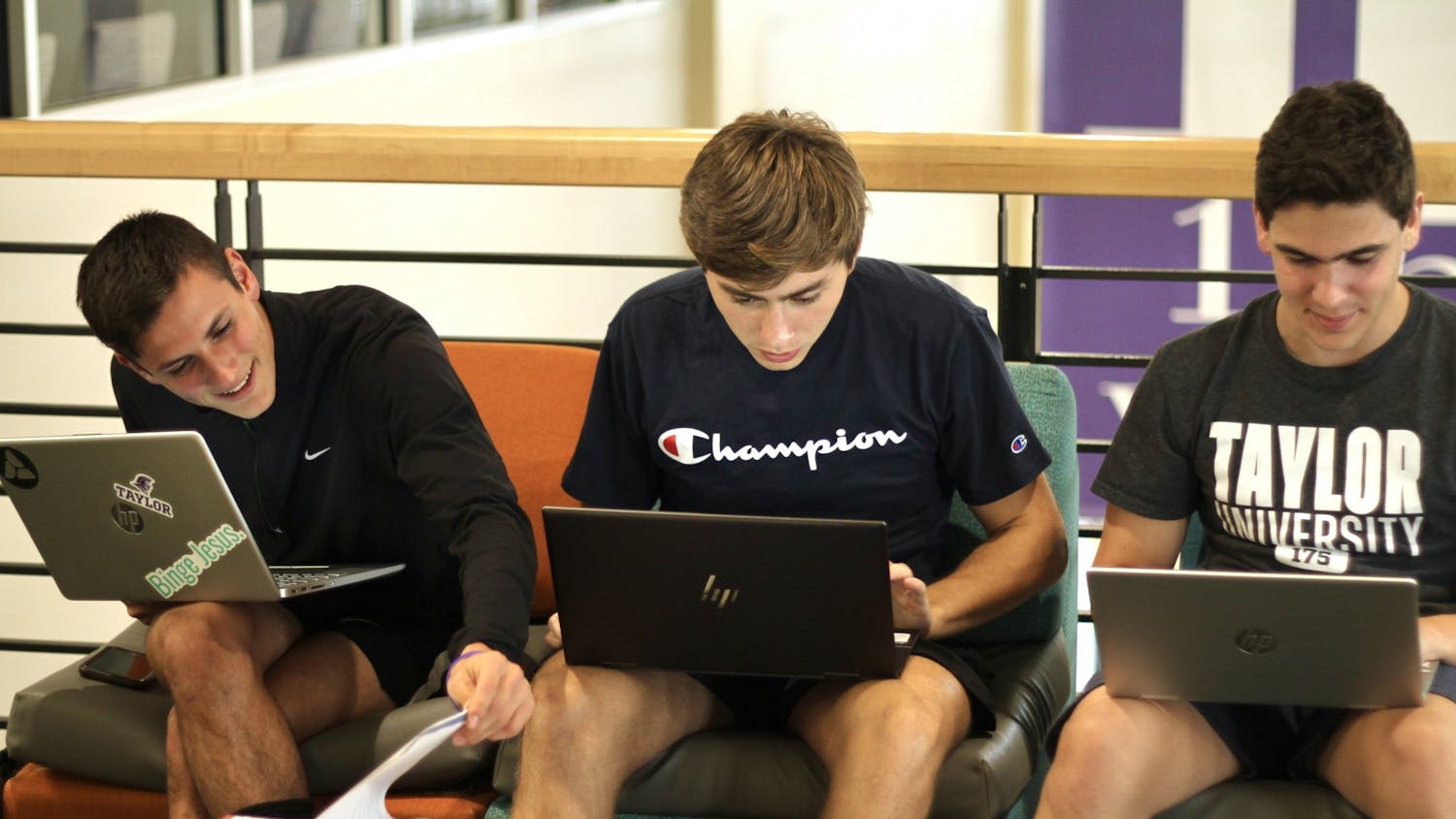Science, technology, engineering and math (STEM) is an area of learning that is known for its difficulty and rigor — making those pursuing a degree in such fields examples of true dedication.
In the throes of Women's History Month, two senior women share their experiences as STEM-related majors at Taylor University.
Though in different fields, Joanna Vasudevan and Autumn Thompson seek to enter STEM-related jobs after obtaining their degrees. They may have separate majors, but they have shared much of the same experience.
A senior majoring in human physiology and preventative medicine, Vasudevan has spent the last four years learning what it looks like to be in a healthcare profession. Inspired by close family in the medical field and a fascination with the human body, Vasudevan hopes to begin a career in healthcare.
"There have been a lot of opportunities that I've been given because it's a small college, for example, working at the invitation clinic," Vasudevan said. "I can work one-on-one with people, and that's not something I can do in other programs."
Vasudevan’s involvement on campus is not limited to her major. She is currently the co-president of a student organization called the Multicultural Student Association (MSA). Working in multiple different cultural contexts, Vasudevan has also been able to experience healthcare worldwide through opportunities found at Taylor.
In a department with all male professors, Vasudevan has seen the benefit of growing close with Taylor faculty.
"I had a hard time connecting with faculty at first,” Vasudevan said. “Over time as I have developed those relationships, it's become easier to talk to them. Still, I was first very intimidated because other students in the major might have different experiences than I would."
This difficulty connecting with faculty in her department has led Vasudevan to understand why having both men and women working in her field is essential.
STEM fields have not always been open to women, but Vasudevan believes both genders are necessary to progress.
"Introducing women into STEM majors allows a kind of breaking down of those gender stereotypes of jobs and helps us to use both male and female qualities and bring them together to form a more holistic view," Vasudevan said. "I'm looking at it from a healthcare perspective, but I think you could look at it from any field in STEM."
When advising someone seeking to pursue a degree in a medical-related field, Vasudevan offers that you are capable of doing hard things and that it does require intense effort to succeed. But with encouragement through support systems, you can achieve your goal.
Similar to Vasudevan, Thompson is pursuing a STEM-related major. Thompson is a senior mathematics major who grew to love math through the example of her parents.
"When I started doing well in math in elementary, they were an encouragement when so many people our age hated math to have parents that both loved math," Thompson said.
Starting with math education, Thompson eventually dropped education to pursue more job opportunities through grad school.
Thompson illustrated how the perception of those with math degrees and those with math education degrees differ dramatically in the professional world. With math education generally less respected, Thompson changed to mathematics, where she became the only female math major in her class.
"I now had a lot smaller major, so I added a psychology minor. That was a crazy difference going from a math class where I was the only girl to psych classes of all girls," Thompson said.
Thompson's experience in an all male faculty and student major has fueled her insight into why having both men and women in STEM-related fields is vital. Regarding math, Thompson commented that men and women approach solving problems differently.
What answer may come naturally to her might come differently for one of her male classmates or vice versa.
"In math, it's honestly a strength to have people that think so differently than you,” Thompson said. “I can look through a problem and only see one way to solve it, but I have friends who just think completely differently about how to solve a problem.”
As a word of advice to girls looking to go into mathematics, Thompson encourages them not to be afraid of failing and says that math is a field that requires failure to grow. Thompson also offered that numerous opportunities present themselves to math majors regarding career paths.
Vasudevan and Thompson have worked hard over the past four years to achieve their goals of working in STEM fields. Through their own experiences, each has seen the value of women entering STEM and the importance of both men and women working together to further society.





